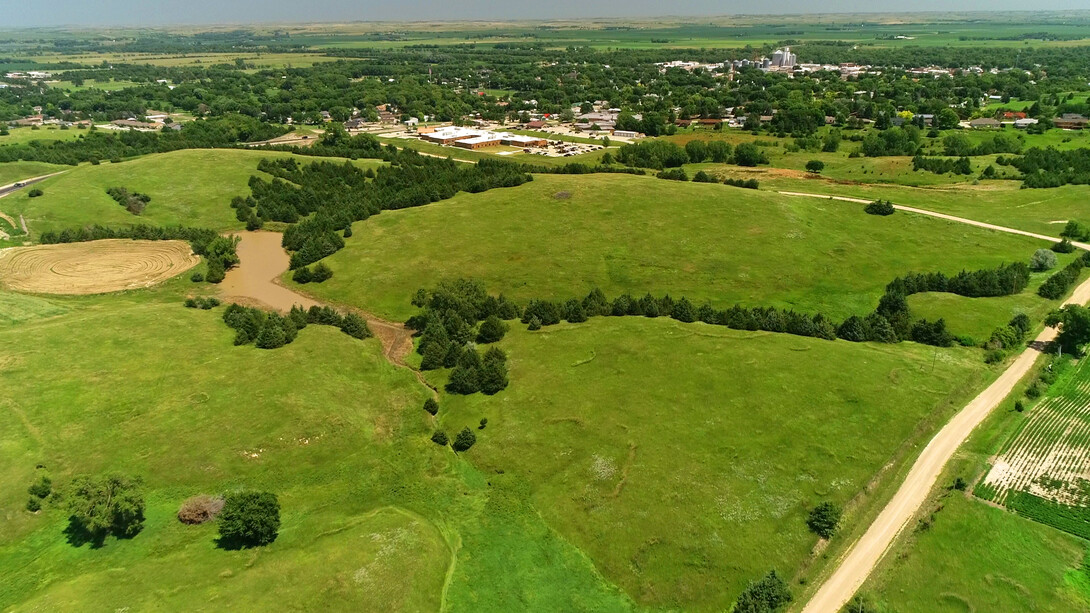
Lincoln, Neb. —The University of Nebraska–Lincoln’s Rural Prosperity Nebraska initiative, along with six Nebraska economic development and Chamber of Commerce organizations, has received more than $400,000 in funding through the Coronavirus Aid, Relief, and Economic Security (CARES) Act, administered by the U.S. Economic Development Administration (EDA) to help businesses and communities respond to coronavirus.
Rural Prosperity Nebraska, a new initiative housed within UNL’s Institute of Agriculture and Natural Resources, connects faculty, staff and students from across the University of Nebraska system with rural community leaders to understand and address issues and opportunities faced by rural communities. Nebraska Extension, a vital component of RPN, will work with the leaders to better understand ways in which the pandemic affected businesses and entrepreneurs in rural communities, to understand their needs, and ultimately to help them recover and thrive.
This project proposes to reach 143 businesses and entrepreneurs. Extension will work with the Chambers of Commerce in Columbus, Hastings and Grand Island, and with county economic development agencies in Broken Bow, Ord and Valentine. Their goal is to better understand pandemic impacts to local businesses, as well as to identify the supports and resources business and entrepreneurs need to move forward. Work on the project has already started.
Entrepreneurs in prosperous communities build the businesses, infrastructure, and opportunities needed to attract and retain residents, create quality of life and sense of place, and foster ongoing economic sustainability. The Entrepreneurial Communities program focuses on how community leaders and residents can create an entrepreneurial ecosystem which finds, supports, and creates entrepreneurs and entrepreneurial opportunities to help their community achieve long-term prosperity.
“There is an unprecedented need for becoming an entrepreneurial community,” said Don Macke, co-founder of the National e2 Entrepreneurial Ecosystems Initiative. “It is foundational to restarting your economy, ensuring sustained economic recovery and an opportunity to grow a more resilient economy.”
Grant funding will be used to hire three halftime business coaches to work directly with businesses in the participating areas.
“Coaches may work with businesses to expand their online presence, apply for funding support, or receive customized training with other entrepreneurs in their community,” said Shawn Kaskie, Extension educator and project principal investigator.
The funding comes at a critical time. The pandemic has had a significant financial impact on many employers and communities in rural Nebraska. A July 2020 study conducted by several economists from UNL and the University of Nebraska at Omaha revealed employer concerns of closing or going out of business; financial impact on operations, liquidity and capital; and decreasing consumer confidence.
When employers in the survey were asked to estimate the impact of the pandemic on their revenue and employment in 30 days compared to current levels, they reported a 43% loss of total revenue, contributing to 35% fewer employees, compared to normal years during this period.
“At this point in time, the key to our community’s growth is to capitalize on opportunities for business start-ups, expansions and transitions,” said Kristina Foth, interim executive director of Valley County Economic Development and Ord Area Chamber of Commerce. “The chance to engage a business coach as part of our community development team will enhance our capacity to support aspiring and current entrepreneurs who are right here in our local community.”
"The Rural Prosperity Project is one of the most useful tools we’ve had in years," said Mike Burge, the economic development director in Valentine. "The entrepreneurial spirt is alive and well in rural Nebraska and any help we can get through the Entrepreneurship Coach will help [entrepreneurs] through the crucial startup phase of any business."
Those involved with the project hope that it can serve as a model for other rural businesses affected by the pandemic. Results will be shared with community development organizations throughout Nebraska and across the Midwest.
"We're grateful to have been selected to receive this grant,” said Andrew Ambriz, executive director of the Custer County Economic Development Corporation in Broken Bow. “We're confident that, through this program, we'll be able to better support our local business owners and entrepreneurs especially through this period of recovery from the pandemic. It's critical that this program expands our capacity as community members and organizations to better serve and grow our local businesses."







